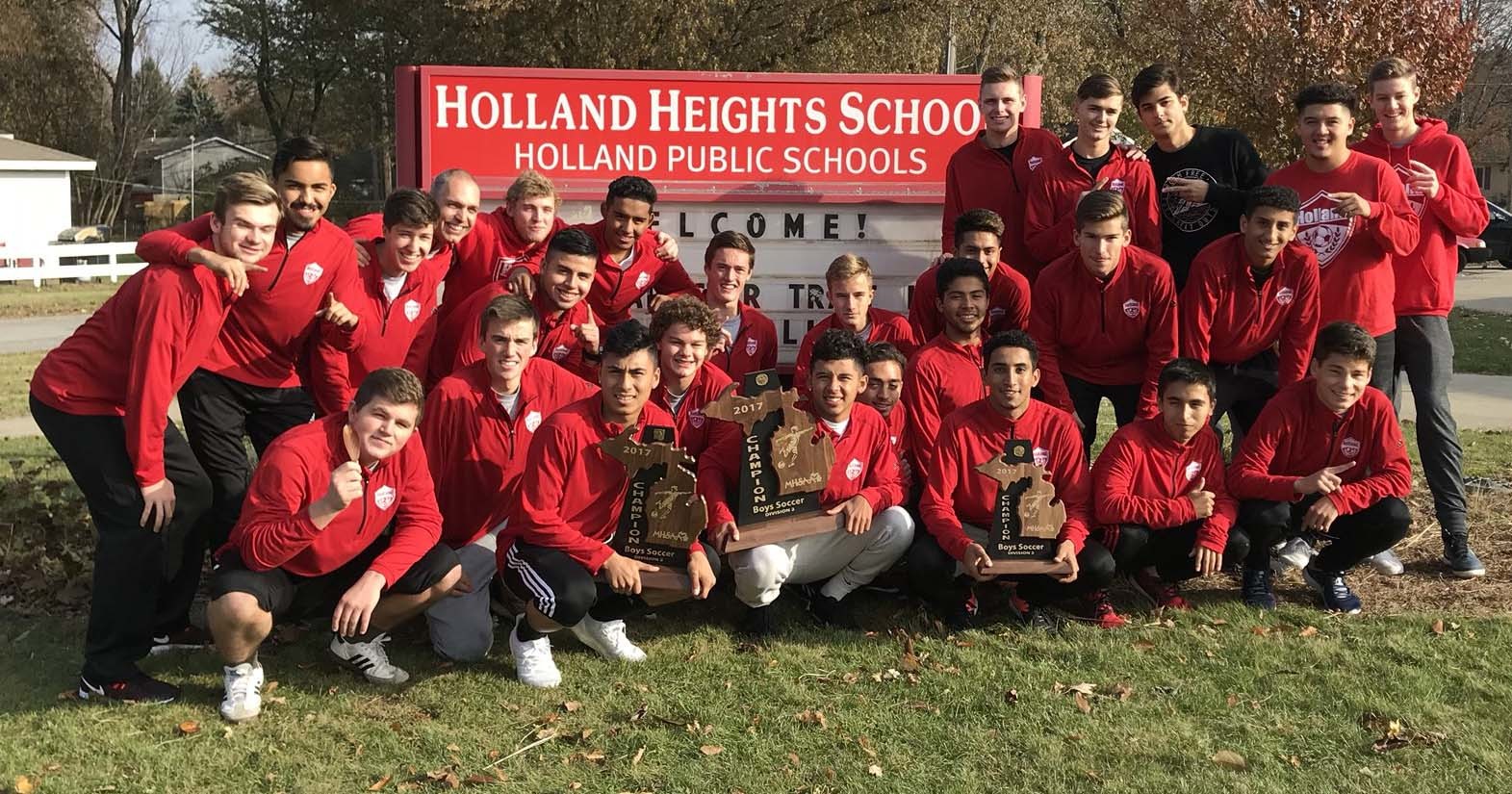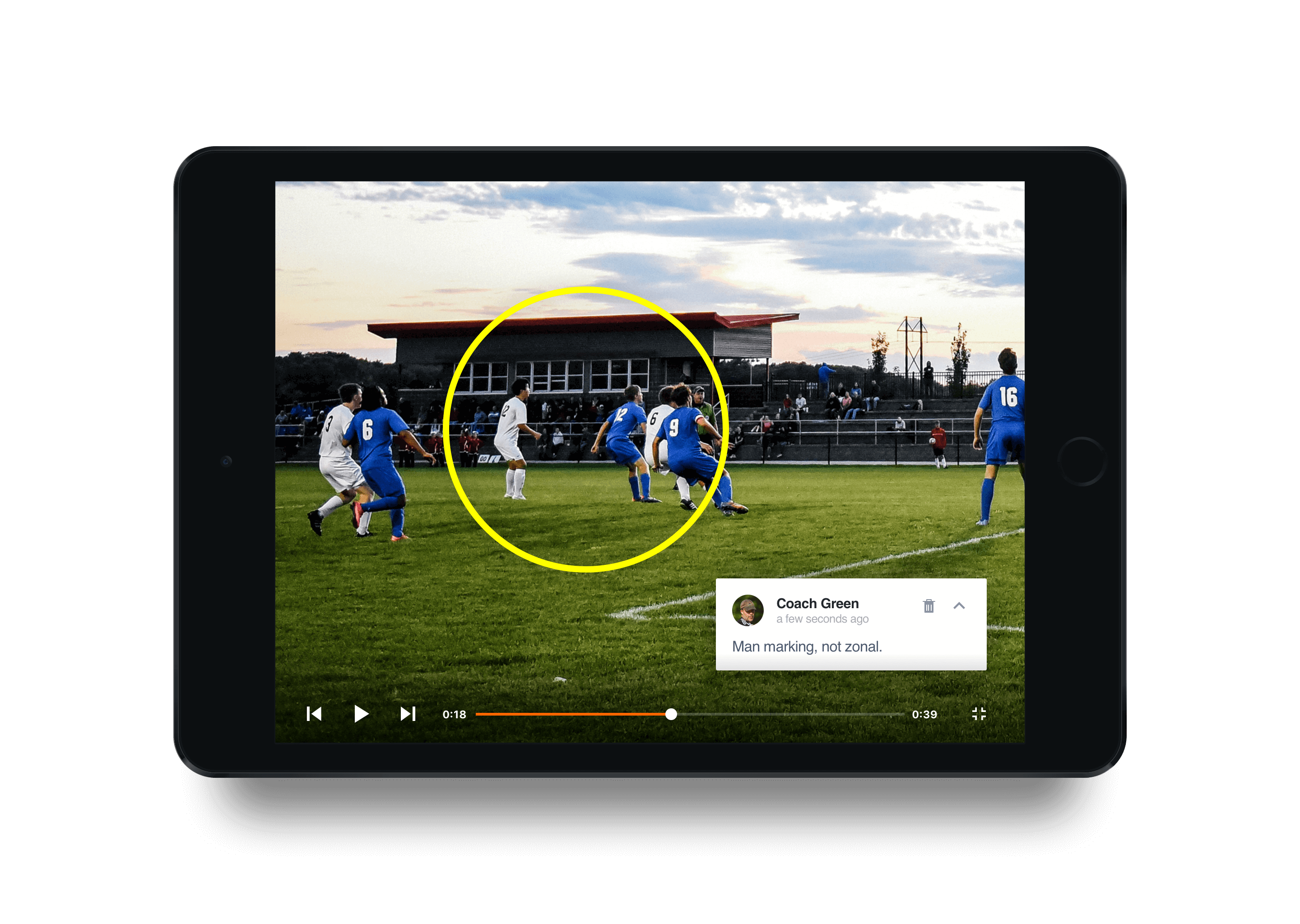Head Coach Greg Ceithaml was familiar with the opponents on his turf but as Holland Heights School soccer team advanced in the Michigan state tournament, things swerved. The new teams were unfamiliar and his players’ confidence began to fade. Ceithaml wanted his team to have a good look at their competition, and he wanted to understand the rivals’ pace of play and organisation. In absence of foresight, the coach and the school turned towards the next best thing – technology. Their solution came in the form of Hudl, an online analytical tool which helps teams manage videos, interact with one another, and analyze game data.
In the state semifinals, the opposing team, Coldwater Cardinals, attacked Holland Heights aggressively but coach Ceithaml, advantaged by his video learnings, had already asked his defenders to swarm around the midfielder and stop quick attacks. “Just watching opponents on video and allowing the players to see the type of teams we were going to be facing gave them confidence,” he said in this blog. He also used video with its commenting feature to improve his own team and direct the players’ attention to specific feedback.

Holland Heights School soccer team uses Hudl for analytics
Like Ceithaml, numerous coaches in the United States, and around the world are using Hudl. They are using its winning formula of combining sports and technology to keep an eye on competition and hone their own teams. Simply put – Hudl is changing the way coaches and players are participating and competing.
Hudl’s riveting platform, with over 161,300 active teams and 4.3 million unique users, has made it the leader in sports technology not just in the United States but also in Europe and Australia. While the number of school teams using Hudl is increasing by the day, its relevance can be judged by the fact that it is used by all the English Premier League clubs, Australian Football League teams, and almost all NBA teams. According to an analysis by CB insights, Hudl has disclosed an equity funding of $106.2 million with investors such as Accel Partners and Nelnet, making it one of the most well-funded tech startup in the United States. But Hudl became profitable soon after its launch in 2006 with $2 million in revenue right since 2010. Today, sports outfits around the world pay Hudl anywhere between $80 to $50,000 annually for its many offerings.
At its surface, Hudl is one of the many digital startups, taking tasks achieved painstakingly by hand, online. Hudl has also acknowledged in this blog that the wonders of video have not eluded coaches. In fact, famous Volleyball coach Liskevych has spoken about how he used to roll out massive tube monitors onto the practice court and rotate film reels to provide instant feedback to players. So how did Hudl manage to change an existing idea into a multi-million dollar company?
Because the company managed to make sport analytics, a tool confined for the professionals, available for everyone. It saved coaches the hours they spent in recording, transferring, and making sense of game videos by taking it all online. A closer inspection reveals that Hudl’s usability lies in tracking individual data and team data through highlights and grade-point averages, presenting it in easy-to-read graphs and charts, and sending athletes’ profile links to recruiters.

Coaches can make comments on video and emphasise on their point
Hudl’s founder and CEO David Graff was a graduate assistant, working with coach Bill Callahan of the Nebraska football team – the Cornhuskers – when the gap between the analysis and distribution of coaching content became obvious to him. He observed the numerous hours and resources spent in creating and distributing game DVDs and wondered why these videos could simply not be online.
In early 2006, he, along with friends Brian Kaiser and John Wirtz, approached Callahan with a basic prototype of Hudl, essentially, a media player without the analytics or statistics. Callahan liked the idea and the University of Nebraska became their first client. The founders invested their own money and bootstrapped the startup in 2006. Graff spoke in an interview that he thought that these top-end universities and their teams would be their primary clients, the source of their revenue, and success.
Things went as planned. They won $50, 000 in Nebraska Business Plan Competition in 2007, but after the initial college acquisitions, the business refused to take off. The founders had to go back to the drawing board and rethink their market. Subsequently, they decided to expand their reach to High Schools, added video analysis, and started with 12 pilot partners in and around Nebraska.
In 2009, they took the 12 pilot projects to 350, and increased that number twenty times to reach 6500 in 2011. From there it was 10,000, 20,000 teams to its current number of 160,000 teams. It was this decision to expand to high school teams that really took Hudl closer to success. While Hudl’s existence was making noise, it was Hudl’s unprecedented move in 2011 that made the world sit up, take notice, and solidify its position as the top sports technology company: Hudl had acquired its biggest competitor Digital Sports Video (DSV).
In 2015, Hudl again made headlines because it had captured the biggest-ever venture capital investment for a Nebraska tech company raising $72.5 million. Later, it secured an additional funding of $30 million in 2017 to add AI to its sport analytics. Over the years, Hudl has added premium features such as Assist (breakdown of any game by professional analysts in 24 hours) and Sportscode (customising a metric that matters to the team) and seen a whirlwind of success. Today, Hudl’s 1029 employees in 15 countries are catering to 30+ sports.
The startup has been the recipient of mega success by striking the iron while it was heating up. The struggle of managing numerous teams was averted with cloud storage, and the idea of video analysis for sport teams found widespread applicability with inexpensive video hardware and ubiquitous smartphones. However, Hudl’s genius cannot be understated: it identified a need and made high-level analytics possible for local teams. With its focus on making coaching easier and helping each athlete become better at the game, Hudl has unleashed a lasting sporting revolution.
It is perhaps only fitting that, advantaged by Hudl, the Holland Heights School soccer team won the Michigan Division 2 state tournament and that coach Greg Ceithaml was named Soccer Coach of the Year.
Subscribe to our newsletter



